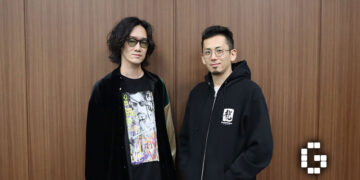While at LEVEL UP KL 2023, we had the opportunity to attend a talk by Yuki Katayama of Kodansha and Mori Michiharu of Shueisha Games titled – Crossing Borders: Japanese Game Publishers and the SEA Indie Wave.

Yuki Katayama is the Chief of the Game Creator’s Lab at Kodansha. Meanwhile, Mori Michiharu is an Executive Officer, as well as the Head of Business Administration and Marketing at Shueisha Games.
Joining them in the talk and serving as the moderator is Masatoshi Tokuoka, a game journalist from Atelier THiRD.

Representation of SEA Culture in Games
Both Katayama and Michiharu started the talk by noting that indie games are extremely popular in Japan and that Japanese publishers invest a lot in the Southeast Asia region. They noted both publishers, Kodansha and Shueisha, prefer developers to not create games strongly influenced by Japanese culture as there tends to be misrepresentations.
However, they said that Japanese players think Southeast Asian cultures are unique, interesting, and like the way they are. Furthermore, using Southeast Asian culture as a background for games is generally great for global growth.
“We have invested a lot in Malaysian companies, and they told us a lot about the culture here in Malaysia, such as the beautiful nature, the perspective of Malaysians, and the lifestyle,” added Michiharu, using the country as an example.
Additionally, Katayama added that inspiration from one’s own culture, individuality, and place of origin made up the pillar of creativity, which is important for games.

“We make good games, fans will find us eventually,” said Michiharu.
That said, they also noted that games do not necessarily need to be developed to represent a culture in mind and that creators can infuse part of it into their games instead.
For example, Katayama said that creators can incorporate loose elements of their own culture into a story and foreigners can still feel and recognize said culture even if it is heavily fictionized. Furthermore, games do not necessarily need to be standardized for the global market.
Michiharu ends the panel talk by saying, “We greatly respect Southeast Asian game creators as they have power over their own creativity and they always try to present their own culture in their creation.












![[SEA Exclusive] From Shadows to Shipwrecks – Jennifer English Talks About Bringing Emotional Depth to Clair Obscur: Expedition 33](https://cdn.gamerbraves.com/2025/04/Clair-Obscur-Jennifer-English_Interview_FI-360x180.jpg)

![[EXCLUSIVE] Do the Game Interview – An Intimate Look at the Challenges of Game Development](https://cdn.gamerbraves.com/2025/04/Do-the-Game_Interview_FI-1-360x180.jpg)
![[EXCLUSIVE] Interview with the Minds Behind of Den of Wolves – 10 Chambers’ New Sci-Fi Heist FPS](https://cdn.gamerbraves.com/2025/04/Den-of-Wolves_Interview_FI-360x180.jpg)



![[Level Up KL 2023] Yuki Katayama of Kodansha & Mori Michiharu of Shueisha Talk About the Importance of SEA Culture Representation in Games](https://cdn.gamerbraves.com/2023/09/Featured-Image-Level-Up-KL-2023-Kodansha-and-Shueisha-750x392.jpg)



![[Level Up KL 2023] Sherwyn Wong Shares His Journey On Achieving His Dreams On Being A 3D Pixar Animator](https://cdn.gamerbraves.com/2023/09/pixar-feature-75x75.jpg)

![[GUIDE] Finding Alma’s Lost Glasses in The Apple of Her Eye Side Quest](https://cdn.gamerbraves.com/2025/04/Alma-Glasses-Quest_Gudie_FI-360x180.jpg)



![[GUIDE] Farming Nightflower Pollen in Monster Hunter Wilds](https://cdn.gamerbraves.com/2025/03/MHWilds-Pollen_Guide_FI-360x180.jpg)